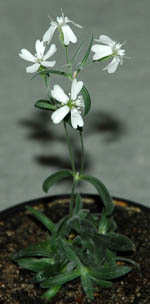Fruit growers, from Southwest Michigan all the way to Traverse City, are dealing with a disaster the likes of which have not been since 1947. That disaster is the result of the very early warm weather we had in March which helped fruit trees blossom early and left them vulnerable to the April freezes we experienced. As a result, fruit tree crops have been devastated.
Herald Palladium:
WATERVLIET – This is shaping up to be the worst year for Southwest Michigan’s fruit belt in more than 65 years, according to Mark Longstroth, fruit educator for the MSU Extension.
At Rodney Winkel’s 240-acre apple orchard on North Branch Road in Bainbridge Township there are no apples developing on the trees.
Mother Nature played a cruel trick on fruit trees in March, enticing fragile buds to bloom when the weather was like two hot summer weeks. And then, in April, a common late spring hard frost hit the crops and damaged the buds so badly that most of the fruit is not expected to materialize this year.
The damage in Michigan will be in the billions of dollars, Longstroth said.

